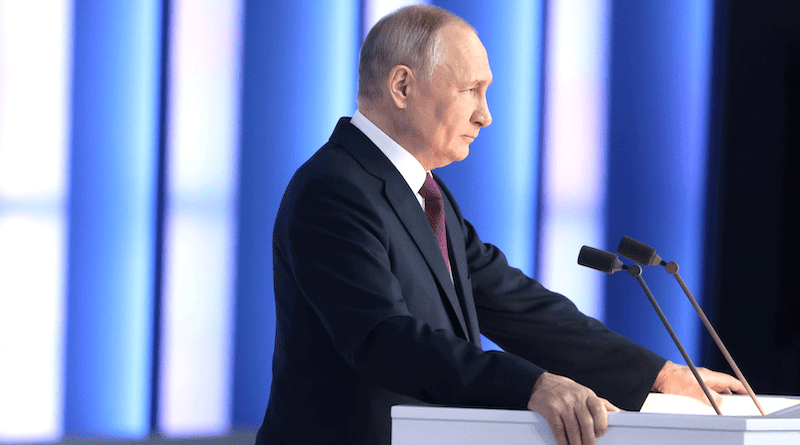Entering A Fifth Term: Kremlin’s Global Dynamics – OpEd
Vladimir Putin’s recent landslide victory in the Russian presidential election has significant ramifications for the West and Europe, given his tight grasp on power and the problems it offers to international relations. Putin’s triumph, characterised by a lack of meaningful opposition and concerns about authoritarian tendencies, represents the continuation of Putin’s control over Russian politics and foreign policy decisions. As analysts investigate the aftermath of the election, several key theories emerge regarding what Putin’s extended term means for Western nations and Europe.
Putin’s decisive victory in the election, with almost 90% of the vote, ensures his position as Russia’s leader until at least 2030. This extended period alarms Western lawmakers, who regard Putin’s rule as autocratic and detrimental to democratic standards. The absence of genuine opposition candidates in Russia, as well as the suppression of criticism, highlight the obstacles that citizens seeking political change face.
For Western nations, Putin’s triumph suggests that hostile relations with Russia will continue. The United States and its allies have condemned the election as neither free nor fair, citing Putin’s persecution of political opponents and constraints on democratic processes. The European Union has expressed alarm over Russia’s actions in Ukraine and their potential impact on regional stability. The West’s response to Putin’s victory is expected to involve further sanctions and diplomatic pressure on Russia, as well as the pursuit of prospects for constructive engagement.
In Europe, Putin’s reelection raises fear about the continent’s security and stability. With Russia under Putin’s long-term leadership, European countries face difficulty in managing relations with a large neighbor known for forceful foreign policy. The conflict in Ukraine remains a major point, with Putin using his victory to justify his prolonged military activities in the region. European authorities are concerned about the possibility of escalation of conflict while remaining dedicated to upholding international laws and standards.
China’s continuous support for Putin following his election victory highlights the strategic partnership between Beijing and Moscow. Xi Jinping regards Putin as an essential ally in combating Western dominance and shaping global dynamics. China’s convergence with Russia on key issues such as Ukraine reflects a shared goal of balancing the present Western-dominated world order. The expanding ties between China and Russia have ramifications for global geopolitics, particularly in terms of developing alternative narratives to Western-led initiatives.
Countries in the Global South have closely watched Putin’s victory, realising the implications for international relations. Leaders in these regions have worked to strengthen ties with Russia while navigating complex geopolitical pressures shaped by Western countries. Russia’s stability under Putin’s leadership allows non-Western nations to diversify their ties and pursue mutual goals with Moscow.
Putin’s victory in the Russian elections has far-reaching strategic ramifications for Pakistan and India. For Pakistan, the growing friendly relationship with Russia represents a potential to strengthen strategic relationships and boost its geopolitical stature. Despite changing global dynamics, Pakistan’s developing alliances with Russia, China, and Iran provide strategic depth and alternative sources of support. On the other hand, India’s long-standing friendship with Russia is under threat as a result of its expanding ties with the United States and involvement in alliances like the Quad. Despite these challenges, India values its relationship with Russia, notably in defence and energy cooperation, and emphasises the importance of maintaining strategic autonomy while negotiating complex geopolitical terrain.
Vladimir Putin’s victory in Russia’s presidential election has far-reaching implications for Western countries, Europe, China, and the Global South. His extended term, however, raises concerns about autocratic rule, strained foreign relations, and shifting geopolitical environments. As international leaders evaluate the implications of Putin’s victory, they will face a complex reality shaped by competing interests, power dynamics, and global governance ideals.

